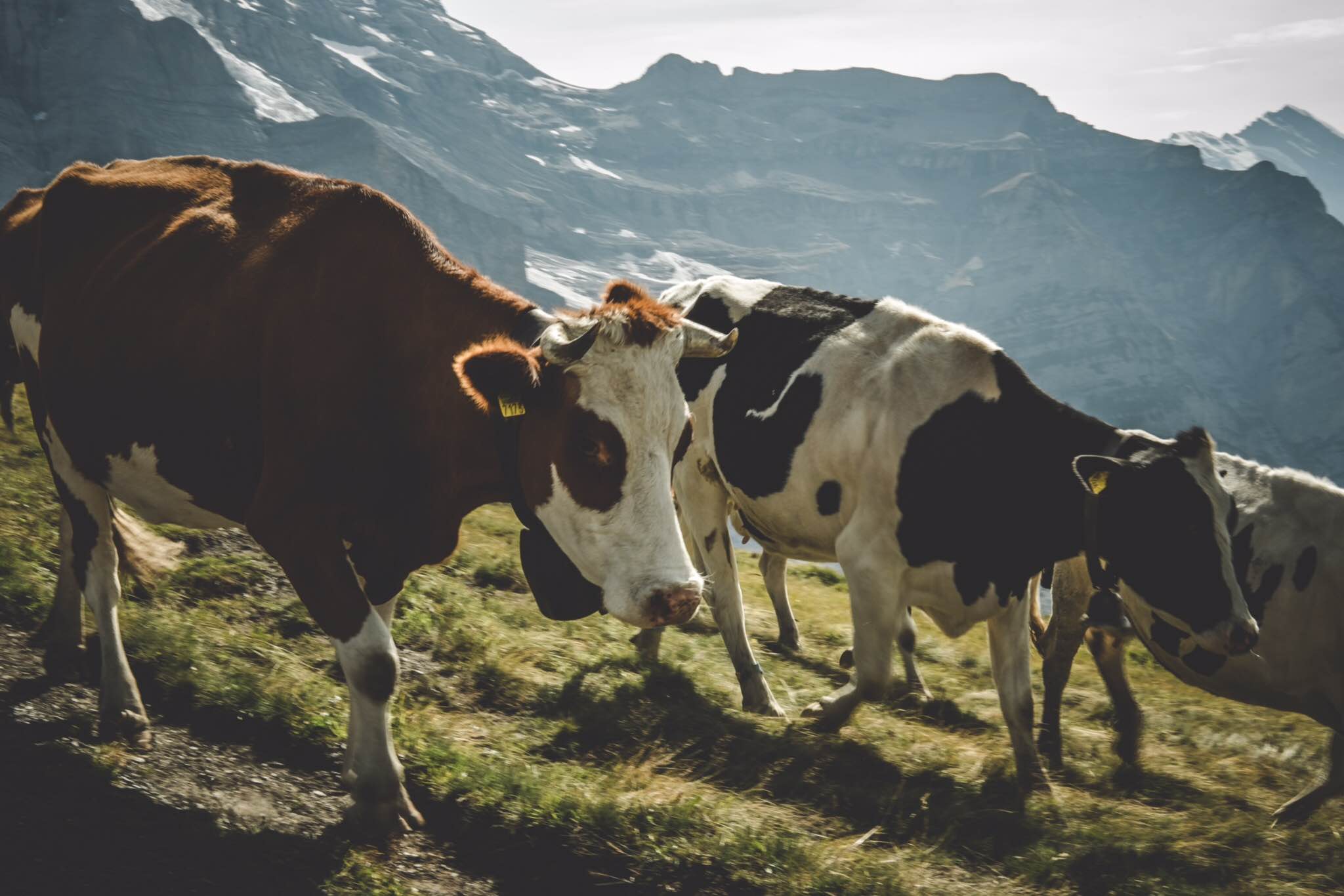Giving Up Beef Is The Key To Global Stability

A new study shows that Beef production is substantially more environmentally destructive than chicken and pork combined— requiring 28 times more land and 11 times more water.
The heavy impact that the meat industry has on the environment has been known for a while, but recent research now shows the scale and extent of the effects compared to other agricultural products. Agriculture is a significant contributor to global warming, creating 15% of the worlds total emissions— half of that coming from livestock. Along with using 28 times more land and 11 times more water than pork and chicken, beef production also produces 5 times the amount of climate-warming emissions.

When you start comparing the amount of resources that go into producing beef per calorie as opposed to other agricultural products such as potatoes, wheat, rice, and legumes, things get really out of control; taking up 160 times the amount of land and producing 11 times the amount of green house gasses.
Professor Tim Benton, at the University of Leeds, said the new research is based on national US data, rather than farm-level studies and provides a useful overview. “It captures the big picture,” he said, adding that livestock is the key to the sustainability of global agriculture.
“The biggest intervention people could make towards reducing their carbon footprints would not be to abandon cars, but to eat significantly less red meat,” Benton said. “Another recent study implies the single biggest intervention to free up calories that could be used to feed people would be not to use grains for beef production in the US.” However, he said the subject was always controversial: “This opens a real can of worms.”

Prof Mark Sutton, at the UK’s Centre for Ecology and Hydrology, said: “Governments should consider these messages carefully if they want to improve overall production efficiency and reduce the environmental impacts. But the message for the consumer is even stronger. Avoiding excessive meat consumption, especially beef, is good for the environment.”
A separate study of people’s eating habits showed that a meat heavy diet caused double the amount of global warming emissions than that of their vegetarian counterparts.
The study of people’s diets was conducted by University of Oxford scientists and found that meat-rich diets – defined as more than 100g per day – resulted in 7.2kg of carbon dioxide emissions. In contrast, both vegetarian and fish-eating diets caused about 3.8kg of CO2 per day, while vegan diets produced only 2.9kg. The research analysed the food eaten by 30,000 meat eaters, 16,000 vegetarians, 8,000 fish eaters and 2,000 vegans.
The main issue is sustainability. An additional 3 billion people could be fed on the existing cropland if it was used more efficiently. Beef production is such an inefficient process. Very little of the resources used in producing beef is actually getting passed into the bloodstream, especially when you start feeding cattle grain rather than grass. It just does not make sustainable or economic sense to use so many resources for the amount of calories you get in return.
Humanities population by 2050 is projected to reach 9 billion people. With current food production methods; we would need to increase food production by 70% in order to feed the extra 2 billion people. Using the resources that are normally used for beef production would be better spent feeding humans.
Consider lowering the amount of meat you eat per week, if everyone cut out one extra day to enjoy a meat free meal, it would be a step in the right direction. Millennials are the last generation to be able to stop the major effects that global warming will have on our world. It is up to us to keep our home clean and safe for future generations.
